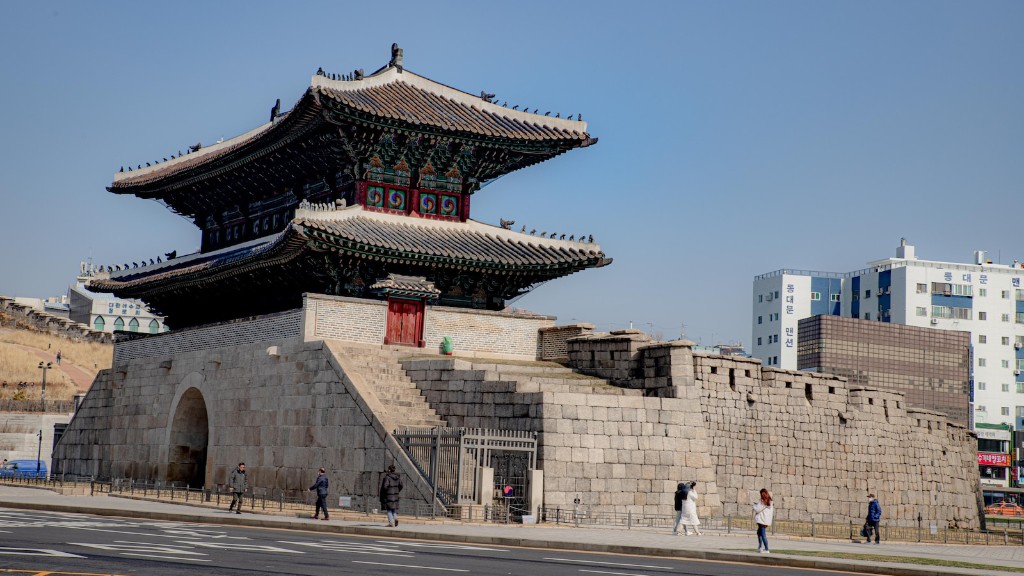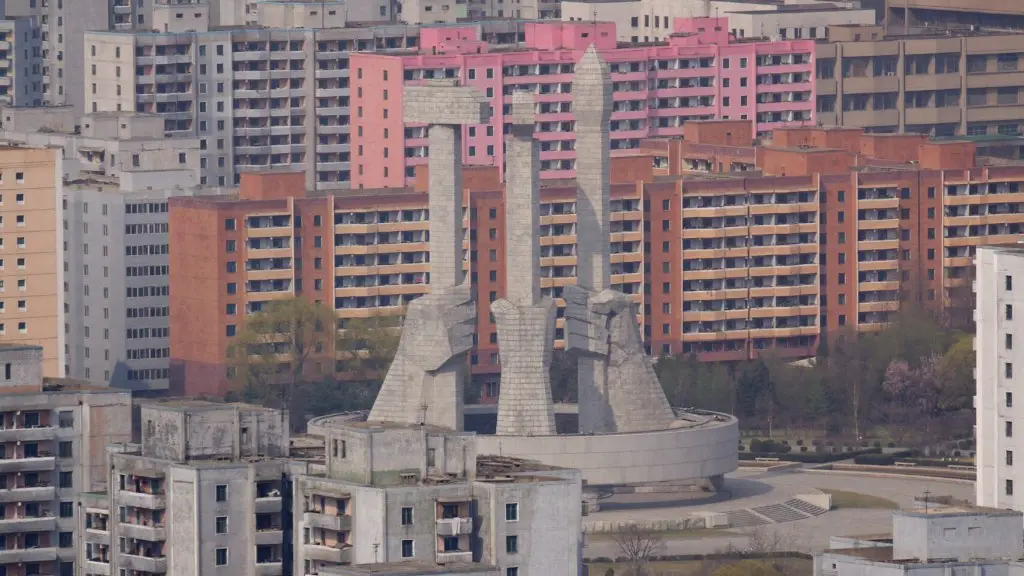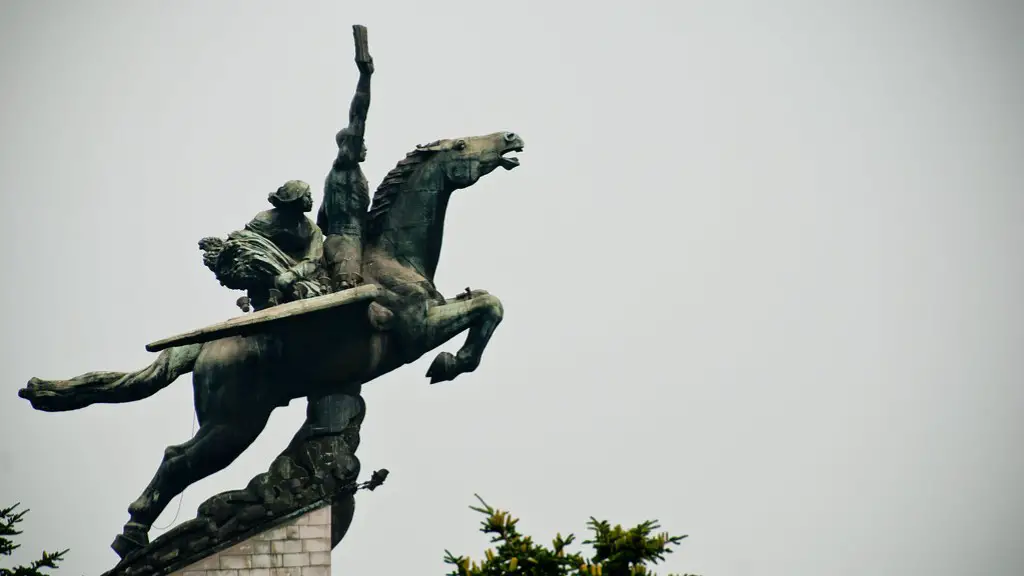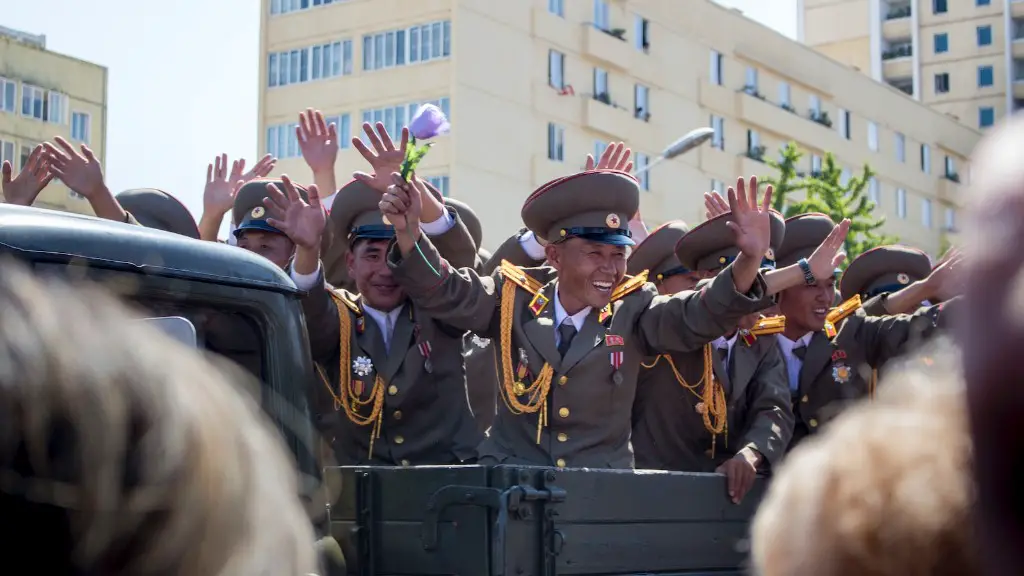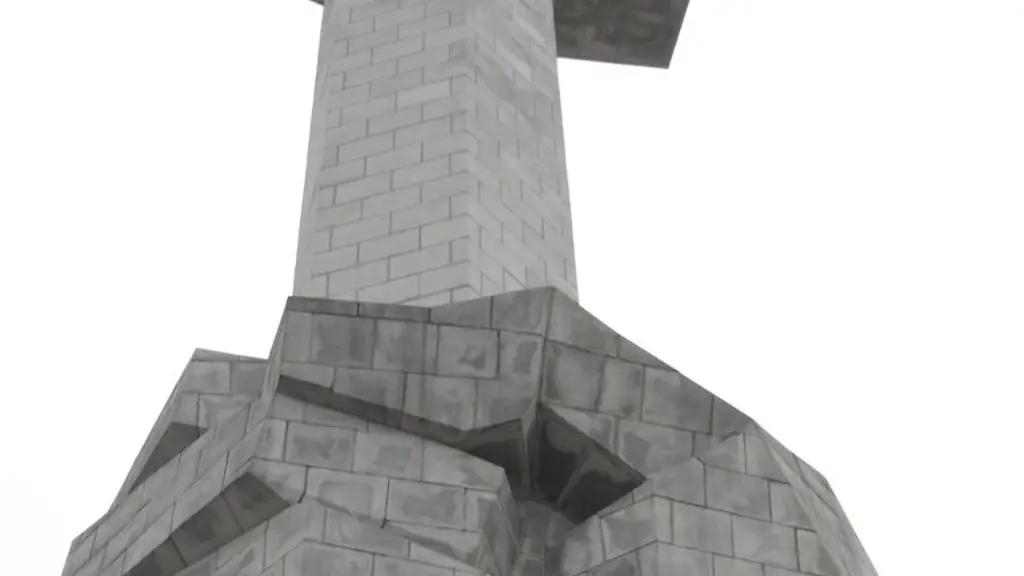Who Is The Government Of North Korea?
North Korea is a nation in East Asia, located on the northern half of the Korean peninsula separating it from its neighbor, the Republic of Korea to the south. It is a single-party state under a totalitarian dictatorship, the Korean Workers’ Party, led by Kim Jong-un.
North Korea is officially known as the Democratic People’s Republic of Korea and is under the absolute rule of Kim Jong-un since 2011. It has been ruled by the same dynastic family, the Kim family, since its inception in 1948. The government is officially based on the Juche ideology of self-reliance, and engages in repression of political dissent and control of the population.
North Korea has had a long and troubled history, and has often been in the news. It is a country of stark contrasts; one of the most isolated and repressed countries in the world with a heavily militarized border and a nuclear weapons program, yet with its own distinct culture and history.
In terms of domestic politics, the government is extremely oppressive and highly centralized. All power is concentrated in the hands of the ruling Party and its leader, Kim Jong-un. The government is highly repressive, controlling speech and media and persecuting dissidents. Political parties and organizations outside of the official government structure are not tolerated.
Internationally, North Korea has been heavily sanctioned for its nuclear weapons program. It is seen as a pariah state by the international community, largely due to its continuing nuclear weapons program and its belligerent attitude towards other nations.
In terms of its economy, North Korea is largely a closed economy, with most of its GDP being subsidized by the government. It also relies heavily on its overseas trade and is highly dependent on other countries, such as China, for trade links. Despite this, the economy is still struggling and living conditions for the average North Korean citizen are still very poor.
The government of North Korea is a totalitarian dictatorship that has so far resisted significant change and still maintains an autocratic grip on its people. The Kim family maintains a brutal stranglehold over the population, and while some reform efforts have been attempted, they have so far had limited success. It remains to be seen whether North Korea will become more open and democratic in the future.
Political Structure
The government of North Korea is based on the Juche ideology of self-reliance, and is run by the ruling Korean Workers’ Party and its leader, Kim Jong-un. It is a republic ruled by a single party, with all power concentrated in the hands of the ruling party. The laws of North Korea operate within the framework of the party, and any dissent or opposition is harshly suppressed.
Under the Kim dynasty, North Korea has established a hierarchical power structure, with all power being concentrated in the hands of Kim Jong-un and the Party. The party governs the state through the Central Committee, which is composed of the top officials of the party and is headed by Kim Jong-un.
The country is divided into nine provinces, each of which is under the direct control of either the Central Committee or Kim Jong-un. The provincial governments are in turn divided into cities and towns, which are managed by local government officials appointed by the central government.
The legal system of North Korea is based on socialist laws and is closely tied to the Korean Workers’ Party. It is highly repressive and aimed at preventing any forms of dissent or opposition to the Party. The Supreme Court is the highest judicial body in North Korea, but it is under the direct control of the Party and its decisions are final.
The political situation in North Korea is heavily monitored by international observers. The government is widely seen as oppressive and has faced several sanctions for its defiance of international standards and its continued pursuit of nuclear weapons. North Korea has faced widespread criticism for its repressive policies and human rights abuses.
Military & Intelligence
North Korea has one of the largest militaries in the world, with an estimated 1.2 million active duty personnel and an additional 7.7 million reserves. The country is highly militarized, with a vast array of sophisticated weaponry, including nuclear arsenals. The military is an important part of North Korean life and is seen as a symbol of national pride.
The military of North Korea is strictly controlled by the government and is the primary force used to maintain order and suppress dissent. The government has a well-developed and highly centralized system of intelligence and security that is used to monitor the population and track and punish any forms of dissent.
The country also maintains a large and well-funded intelligence network and is known to engage in cyber-espionage. The North Korean government is well-known for its use of propaganda and intimidation to control its citizens and maintain its grip on power.
The military and intelligence apparatus are tightly controlled by the ruling Korean Workers’ Party and are used to maintain the Party’s control over the population. North Korea is a highly militarized state, and any dissent or opposition is harshly suppressed. It is estimated that the military and intelligence apparatus of North Korea cost the country 10% of its GDP.
Economy
North Korea has a struggling economy that relies heavily on foreign aid and trade, especially with its neighbor, China. Despite this, the economy has been largely stagnant in recent years. Poverty is widespread and living conditions for ordinary citizens are poor.
The economy of North Korea is highly centralized and the government controls the majority of economic activity. The country has a largely state-run command economy, though there are some limited opportunities for private enterprise. The country’s GDP is largely subsidized by the government and its economy is heavily dependent on trade with other countries.
The government has attempted to make some limited reforms in recent years, resulting in some limited economic growth. These reforms have not had a significant impact on the lives of ordinary citizens, however, and living conditions have not improved. The government has also been heavily sanctioned by the international community due to its nuclear weapons program.
Society
North Korea is a highly regimented society, with all aspects of daily life tightly controlled by the government. All forms of dissent or opposition to the Party are harshly suppressed, and all citizens are required to conform to the government’s rules and regulations.
The media in North Korea is tightly controlled by the government and provides only a very limited view of the outside world. Access to the internet is restricted, and all forms of communication are heavily monitored. There are very limited opportunities for dissent or any sort of political expression.
Living conditions in North Korea are poor; wages are low and food shortages are common. Economic hardship and poverty are widespread, and the majority of people are struggling to make ends meet. Despite the difficult conditions, North Koreans live in a distinct culture that is shaped by their shared history and common identity.
Foreign Relations
North Korea is one of the most isolated and repressed countries in the world, and its relationships with the outside world are strained. Relations with its neighbor, South Korea, have been particularly poor, and the two countries are technically still at war.
North Korea has also had a difficult relationship with the United States and has come under increased scrutiny in recent years for its nuclear weapons program. The country has been subject to several international sanctions and has been heavily criticized for its human rights abuses.
North Korea has diplomatic relations with many countries, but its relations with most are strained. China is its closest ally and is one of the few countries still providing economic aid to North Korea. Relations with the United States remain tense, and North Korea has recently increased its belligerent rhetoric towards the United States and its allies.
Final Thoughts
North Korea is an isolated and highly oppressive nation, ruled by the Kim family dictatorship since its inception in 1948. The government is highly centralized and all power is concentrated in the hands of the ruling Korean Workers’ Party and its leader, Kim Jong-un. The country is highly militarised and has a nuclear weapons program, and its human rights record has drawn international criticism.
The economy is largely state-run, and poverty and hardship are widespread. The government’s attempts to introduce reforms have had limited success and living conditions for the average North Korean citizen remain poor. Relations with the outside world are strained and the country faces continued sanctions and international criticism.
Despite these facts, North Korea is a country with a distinct culture and history, and it remains to be seen what the future holds for this enigmatic nation.
